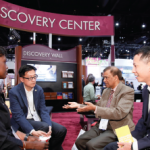Care for the Underserved
COIN’s Small Groups project is intended to improve access to quality care. COIN works with rural Area Health Education Centers (AHECs) to conduct live meetings of rheumatologists and rural healthcare providers to educate non-specialists and help build referral and consultation connections.
COIN is also exploring ways to help rheumatologists find volunteer opportunities that bring rheumatology care to underserved populations. Volunteers to Expand Rheumatology Access (VERA) was conceived by ACR members Liana Fraenkel, MD, MPH, and Robert H. Shmerling, MD. Along with a small volunteer task force, they are conducting a needs assessment to evaluate the sustainability of establishing an information clearinghouse intended to connect rheumatologists across the country with volunteer opportunities to provide services for underserved rheumatology patients with no other access to care.
Such volunteer opportunities offer rheumatology fellows a chance to gain exposure to underserved communities and give medical students and residents an opportunity to shadow experienced rheumatology providers.
Diversifying Clinical Trials
The Community Health Worker (CHW) Lupus Clinical Trial Training (LuCTT) program is one of two COIN projects designed to support recruitment and enrollment of minority populations affected by lupus into clinical trials. Minorities, especially African Americans and Latinos, are most affected by lupus, but they remain under-represented in clinical research. A diverse pool of research participants in clinical trials provides more robust evidence about the generalizability of new treatments which, in turn, may be valuable for addressing health disparities.
Led by ACR member Irene Blanco, MD, MS, LuCTT contains an online and in-person training course to increase CHWs’ knowledge and skills so they can better educate African-American and Latino communities on lupus clinical trials and support people with lupus navigating the clinical trial and healthcare systems.
COIN is working with three CHW organizations to achieve its goals in three medically underserved areas. These include the Bronx Community Health Network in the southeast Bronx, New York; Hispanic Health Initiatives in Apopka/Winter Garden, Florida; and Dia de la Mujer Latina in Harris County, Texas.
In addition, COIN’s Materials to Increase Minority Involvement in Clinical Trials (MIMICT) project, led by Allen Anandarajah, MD, MPH, and Saira Sheikh, MD, creates collaborative opportunities for clinical trial sites and healthcare providers. MIMICT delivers accurate, trusted, understandable information designed to enable non-specialty providers to help people with lupus make informed decisions about participation in clinical trials.
In Sum
By developing and implementing initiatives geared toward increasing health equality, creating models to expand rheumatology-related capacity in places of need and building bridges with local and national organizations, COIN lives up to its name as the collaborative force within ACR.
It is through collaboration that the ACR strives to deliver on its promise to you—in every sense of the word. I encourage you to contact any of the COIN working group members (see below) and to visit COIN’s webpage to learn more about the programs and resources available.


